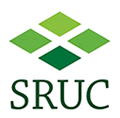The research aims to identify the most effective incentive mechanisms to innovation uptake towards food waste prevention and reduction, and the socio-economic and environmental impacts under greening policy scenarios.
Project background
Reducing waste as part of a sustainable food and drink sector identifies the need for tailored incentive mechanisms to support innovation uptake considering the socio-economic and environmental implications of production and consumption. This requires identifying the optimal balance of policy and private, mandatory and voluntary instruments, well synchronised with existing mechanisms of support to connected areas of investment focus, and adaptable to the fast changing post Brexit, post pandemic greening landscape.
Innovation uptake to reduce food waste bridges production and consumption, with associated incentive mechanisms complementing or coinciding between supply chain nodes. Food waste innovation may include development of new technologies, products and processes, or organisational, management and behavioural models, with the former covering mostly production and processing, while the latter better suited to retail and consumption. Consistently, incentive mechanisms are similarly differentiated, with more mandatory features targeting primary production and the data elusive ‘missing middle’ (processing, wholesale), to more voluntary attempts towards the consumption end of the chain, albeit the latter also gaining some legislative attention recently.
With consumption covering a more diverse yet spatially connected blend - retail, hospitality and households - a more complex mix of incentives to business and individual behaviours, and associated socio-economic and environmental impacts, the assessment of the most efficient mechanisms to innovation uptake is necessary, particularly in light of planned (recently under consultation) more stringent food waste reduction strategies.
Research questions
The project aims to answer the following research questions:
1) Is there a pattern to how the spread, extent and type of incentive mechanisms influence the form and extent of innovation uptake towards food waste reduction?
2) Are there spillover effects between innovation uptake to reduce food waste at retail and household level?
3) What are the most effective incentives to innovation uptake, and how do they rank in terms of environmental efficiency?
4) How do effective incentive mechanisms to reduce waste perform under policy scenarios such as Circular Economy and Good Food Nation strategies?
Methodology
The project will use a combination of methodological approaches to achieve the specific research objectives. It is envisaged that available data may be inconsistent, despite some information being available on the food waste at retail and household level (and remaining nodes of the supply chain). To counteract data limitations, the research will use a combination of secondary and primary, qualitative and quantitative data to analyse and map uptake of innovation towards waste prevention and reduction, with a specific focus on the retail and consumption nodes of the supply chain.
Data collection will be based on rapid evidence assessment of the literature, qualitative (in-depth interviews and participatory workshops), quantitative secondary data (e.g., Kantar); and case studies on the socio-economic and environmental impacts of waste reduction to provide data for the efficiency analysis and system dynamic modelling. Case studies will involve a qualitative analysis of the socio-economic and environmental impacts of waste reduction at regional level, based on interviews with policy (local administration) and independent and chain retailers in urban and rural Scotland.
The analysis will focus on different forms of innovations – product and process development, business and behavioural models – incentivised by different instruments, from ‘softer’ ones e.g., education and training, to regulatory mechanisms of either carrot or stick type (e.g., subsidies, taxes, compulsory/voluntary standards). The differentiation between types of incentives and types of impact will ensure the outcomes of the proposed research will align better with existing initiatives and strategies, for example uptake of green technologies aligned with net zero targets, or uptake of innovation business models in response to post Brexit trade environment.
To assess the environmental efficiency of incentive mechanisms to innovation uptake, the analysis will include efficiency analysis methods (Network Data Envelopment Analysis) accounting for decomposition of efficiency optimised for desirable and undesirable outputs, i.e., socio-economic benefits of waste reduction, and environmental cost of pollution (e.g., greenhouse gas emissions associated with food waste) at retail/household level. Environmental impacts of effective incentive mechanisms to reduce waste will be simulated under policy scenarios using stakeholder participatory approaches, e.g., group model building workshops, building into causal loops of systems dynamic models.
Timetable:
Rapid Evidence Assessment, secondary data collection (September 2023 - March 2024)
Participatory workshop, in-depth interviews (April 2024- August 2024)
Case studies (environmental analysis) (September 2024-February 2025)
Economic and environmental efficiency analysis (March 2025-August 2025)
Systems dynamic model (September 2025-March 2026)
Finalise dissertation write up, peer review submissions (April 2026-September 2026)
Training
A comprehensive training programme will be provided comprising both specialist scientific training and generic transferable and professional skills.
In addition to mandatory DTP training, the student will undertake training on (1) systems dynamics modelling, (2) participatory approaches, (3) efficiency analysis, and (4) systematic reviews.
Requirements
The student would have ideally a multidisciplinary background e.g., social science (food or environmental economics, business) and biosciences. Desirable skill set would include statistics, econometrics.
How to apply:
Project Description | The University of Edinburgh
http://www.ed.ac.uk/e4-dtp/how-to-apply

 Continue with Facebook
Continue with Facebook



